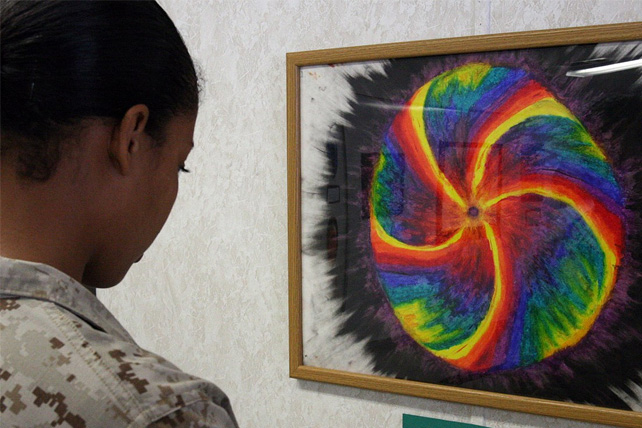The US government’s Food and Drug Administration (FDA) has reached an agreement with a non-profit, the Multidisciplinary Association for Psychedelic Studies (MAPS), for medical testing that could lead to the regulation of MDMA as treatment for post-traumatic stress disorder (PTSD).
On August 26, MAPS announced that the FDA granted “Breakthrough Therapy Designation” to MDMA for PTSD treatment. The agreement will allow for Phase III medical trials of MDMA use for PTSD sufferers. Phase III trials are the last stage of testing for a potential medicine before it is given approval from the FDA. MAPS is sponsoring two Phase III clinical trials of MDMA-assisted psychotherapy in patients with severe PTSD. They stated that the “trials will assess the efficacy and safety of MDMA-assisted psychotherapy in 200-300 participants with PTSD, aged 18 and older, at sites in the U.S., Canada and Israel”.
If all goes to plan, the trials will begin enrolling subjects in spring 2018.
By designating MDMA-assisted therapy for PTSD sufferers as “breakthrough therapy” the “FDA has agreed that this treatment may have a meaningful advantage and greater compliance over available medications for PTSD”, MAPS describes.
MDMA has been an illegal substance in the US since 1985, when the Drug Enforcement Administration (DEA) classified it “as a dangerous intoxicant with no accepted medical use”. Despite this designation, the drug’s potential for providing medical benefits is gaining increasing interest – if not acceptance – among academics. Preliminary research has already suggested a significant potential for the drug in treating PTSD.
Nicholas Blackston, a former US marine who served in the Iraq war, claims that MDMA – combined with therapy – cured him. Blackston had been involved in a Phase II MAPS-sponsored clinical study, designed to test dosage, efficacy, and safety of MDMA in PSTD treatment. Prior to the treatment, he had described other PTSD treatment as leaving him feeling “like a zombie”.
After completing three 75mg sessions and three 125mg sessions in 2012, he said “I saw my whole past completely differently… It no longer became something that was haunting me.” Since concluding his treatment, Blackston no longer registers on the clinical PTSD scale, on which the severity of the disorder is measured.
Following MAPS’ Phase II trials, which combine MDMA administration with psychotherapy, 61 percent of participants no longer had PTSD two months after the completion of the trial. That figure rose to 68 per cent in a 12-month follow up.
If these upcoming trials yield similar results to previous trials, the FDA could approve MDMA-assisted treatment for PTSD as soon as 2021, according to Rick Doblin – founder and executive director of MAPS.
“If you were to design the perfect drug to treat PTSD, MDMA would be it,” Doblin told the Washington Post. Additionally, as war veterans are one of the main groups who suffer from PTSD, Doblin states that MAPS’ research can easily “win public sympathy” since “no one’s going to argue against the need to help them”.
Professor David Nutt, a neuropsychopharmacologist at Imperial College London, told Science magazine that “This is not a big scientific step. It’s been obvious for 40 years that these drugs are medicines. But it’s a huge step in acceptance.” Indeed, before MDMA was banned and listed as a Schedule I drug by the DEA, it had been used by some psychiatrists as a psychotherapeutic tool – proving particularly effective for couple’s therapy.
As reported by Talking Drugs, scientific research into MDMA and other illegal drugs may aid policy reform. These recent clinical trials concerning MDMA and PTSD could have a significant impact on both public perception and public policy.
The outcome of these upcoming studies relating to PTSD and alcohol addiction could see MDMA being widely accepted by the public and in the medical sphere in the US. But that’s only the beginning; Doblin has big plans for the future: “now that we have agreement with the FDA, we are ready to start negotiations with the European Medicines Agency.”


